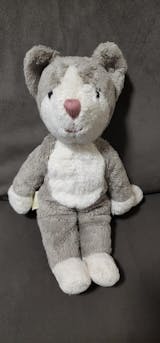Is my baby's dummy safe? This is an oft asked question by parents.
So how do you know if your baby's dummy is actually safe?
So here goes the technical side!
We have done extensive research on the subject of Safety Standards for baby dummies/soothers/pacifiers! And have worked with staff at MBIE and Standards New Zealand.
There are no specific mandatory requirements for dummies & pacifiers in NZ, but they must be safe. The obligation for safety is set out in the Fair Trading Act 1986, and rests with the product importer/supplier/wholesaler.
Although the MBIE recommend that suppliers look to voluntary standards where applicable/available as a way to ensure that their products are safe. New Zealand and or Australian standards are preferable as they take into account local considerations.
As there is no specific New Zealand safety standard, the Australian AS 2432:2015 standard and the European EN1400:2013+A1:2014 are both recommended as voluntary compliance.
We have undertaken extensive testing on our Classical Child Silicon Dummies by an accredited labotary, and our dummies exceed the standards required for AS 2432:2015 Standard for Babies Dummies and also EN 1400:2013+A1:2014. These are the Australian and European standards.
Composition of the food grade silicon material also has been comprehensively tested with the results being a safe, non-toxic pacifier that is free of BPA, PVC, Latex and Phthalates.
So you can be sure when purchasing our Classical Child Silicon Pacifiers that we have taken every step both mandatory & voluntary to ensure that our dummies are more than safe for your child. (Always follow usage instructions included with product)
And other than ensuring the dummies you purchase for your child are safe and meet these voluntary standards, you as a parent can also follow the below safety tips for dummies/pacifiers:
- It is very important to check the dummy regularly to see if it's worn or degraded, as babies can choke on any loose bits.
- Choose a dummy that complies with standards (as above)
- Every time you give the dummy to your baby, pull firmly on the teat and tug the handle and ring to ensure they don't give way under pressure.
- Check the teat for wear and tear. If it looks worn or damaged, throw the dummy away.
- Store dummies away from direct sunlight, which can cause the rubber or silicone to wear out.
- Sterlilse dummies or wash them in hot soapy water; then rinse and air dry.
- Regularly buy new dummies as constant use and washing can make them weak.
- Never attach dummies with a ribbon or cord as these could strangle your baby.
- Watch children who can remove dummies themselves as they're more likely to try to place an entire dummy into their mouth, not just the teat.
- Avoid using dummies when babies and toddlers are teething or have developed teeth as chewing may cause the teat to tear off and they could choke.



